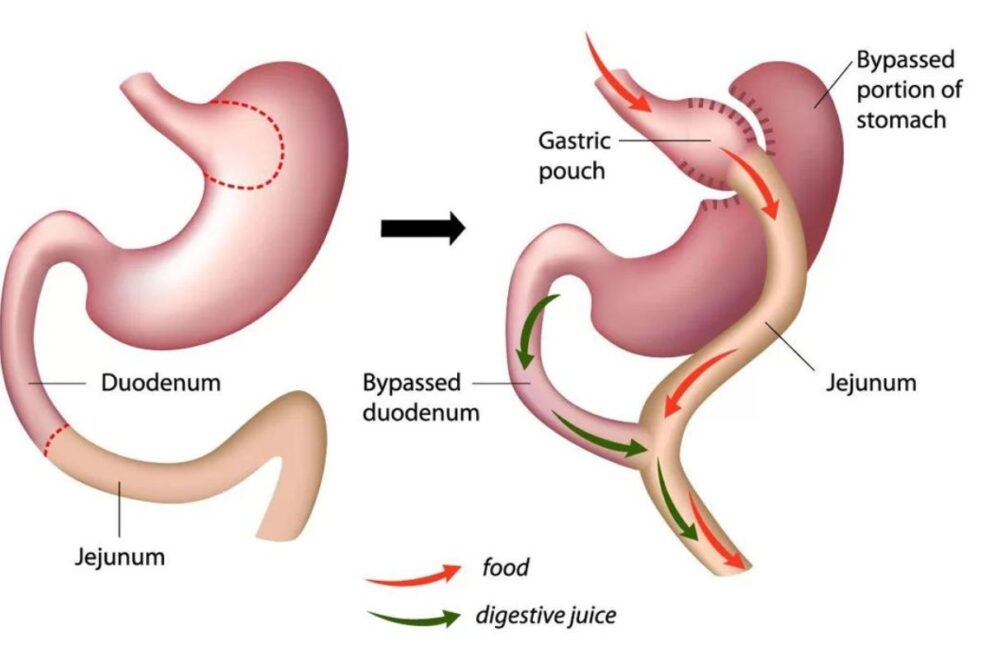Silastic Ring Gastric Bypass in India: Advanced Bariatric Surgery for Effective Weight Loss
Silastic Ring Gastric Bypass is an advanced bariatric procedure that helps individuals with obesity achieve significant weight loss.


Free Doctor Opinion
Gastric Bypass is Malabsorptive Surgery in India
Unlike less drastic bariatric procedures such as stomach banding which only reduce stomach-size, gastric bypass is designed to reduce absorption of calories. Hence it is commonly referred to as malabsorptive surgery.
Gastric Bypass and Nutritional Deficiency in India
Because many important nutrients (eg. iron and calcium) are absorbed in the bypassed section of the digestive system, nutritional deficiency is one of the main post-operative risks of gastric bypass operations. As a result, patients typically need to follow a lifelong program of nutritional supplementation to maintain good health.
Gastric Bypass Offers Significant Weight Loss
Stomach bypass surgery typically produces significant post-operative weight reduction, and is therefore a highly effective treatment for clinical or morbid obesity. Bypass patients typically lose 66 percent of their pre-operative excess weight within two years. In one patient study (125 subjects), excess weight loss of 74 percent at one year, 78 percent at two years, 81 percent at three years, 84 percent at four years, and 91 percent at five years was achieved. Malabsorption-type surgeries typically are more effective for weight loss than restrictive procedures like gastric banding.
Post-Operative Patient Compliance Essential in India
Like all types of bariatric surgery, gastric bypass can only achieve successful weight reduction if the patient adheres to the eating and exercise guidelines issued by their weight loss surgeon. Even though malabsorptive surgery like gastric bypass is more compulsive than gastric banding, thus making it more difficult for patients to “cheat”, some patients are unable or unwilling to change their diet or fitness levels. In such cases, weight loss is only temporary and much of it will be regained.
Do you have your medical reports; send us now for a free quote –click here
Or email at [email protected] / Call +91 9029304141
Read Also :-
- DBS (Deep Brain Stimulation) in India: Advanced Treatment for Neurological Disorders
- Surrogacy Agency in India: Professional Guidance for Your Parenthood Journey
- Stereotactic Radiosurgery: Precise Non-Invasive Treatment for Tumors and Abnormalities
- Advanced Spondylosis Surgery in India: Procedures, Costs & Leading Hospitals
- Stenting for GI Tract Surgery: A Minimally Invasive Solution in Digestive Health
Committed To Build Positive, Safe, Patient Focused Care.
High Quality
Care
Home Review
Medicine
All Advanced
Equipment
Book An Appointment

At We Care India, we offer complete medical services for your entire family, from routine check-ups to injury care, ensuring personalized attention and expert assistance for all your health needs.


